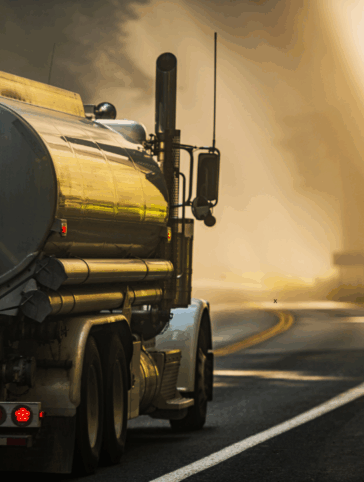
Jul 16, 2025
Fuel and Propane Claims: 4 Scenarios to AvoidAs society grapples with climate change, people are recognizing the need for clean energy. Propane is emerging as a viable clean-burning alternative fuel. As the propane market grows, so will the propane sector’s insurance needs. This is creating a fantastic opportunity for insurance brokers who are looking for a new niche with long-term potential.
Propane is also known as liquefied petroleum gas or propane autogas. According to the U.S. Department of Energy, it is used in propane vehicles, home and water heating, cooking, refrigeration, clothes drying, and powering farm and industrial equipment. It is also used as a raw material to make plastic and other compounds. It is clean burning and does not present any risk to the soil, groundwater, or surface water if it accidentally spills.
According to Fortune Business Insights, the global propane market was valued at $88.77 billion in 2020 and is expected to grow to $98.50 billion by 2023 and $225.10 billion by 2030. That’s an impressive CAGR of 12.5%.
This growth is being fueled by interest in propane vehicles. Although currently only about 3% of U.S. propane fuels vehicles, the U.S. Department of Energy says interest in propane as an alternative fuel source is growing because it is available domestically, has a high-energy density, burns clean, and has a relatively low cost. Fortune Business Insights says propane autogas vehicles produce 90% fewer particulates and 20% less carbon dioxide than petrol vehicles.
Switching from petrol vehicles to propane vehicles can be expensive, but government funding could make this an affordable option.
The EPA’s Clean School Bus Program will provide $5 billion between 2022 and 2026 to replace existing school buses with zero-emission and low-emission models. During the first funding opportunity, the EPA awarded up to $965 million to around 400 schools.
School Transportation News says propane autogas is the most common alternative fuel for school buses because (unlike with electric vehicles) there are no concerns about recharging or range restrictions. In addition to the EPA Clean School Bus fund, schools may be able to draw on state incentives to fund the switch.
Schools aren’t the only ones adopting propane autogas.
According to Fleet Owner, fleet operators are looking for alternative fuels, but electric vehicles aren’t currently a practical option for many applications due to range issues and the lack of charging infrastructure. However, fleets are finding success with propane autogas. Passing newer emissions standards for vehicles is becoming increasingly difficult, but since propane is a clean-burning fuel, the emissions associated maintenance is easier.
According to Yahoo Finance, Superior Energy Systems recently hit a milestone by pumping more than 100 million gallons of fuel through its PRO-Vent 2000 propane Autogas dispensers.
Although propane offers many benefits as an alternative fuel source, it is not without risks. Propane is highly flammable – and when propane fires occur, there can be explosions. According to the CDC, the explosion associated with propane is called a boiling liquid expanding vapor explosion (BLEVE) and is always possible during a propane fire.
The propane market is growing, and the need for practical alternative fuels means it’s likely to keep growing in the foreseeable future. This means there will be more propane dealers and distributors who need insurance coverage designed for their unique exposures.
Tangram offers comprehensive insurance packages for the propane sector. Our insurance solutions include property, general liability, inland marine, commercial auto, workers’ compensation, and excess limits. We also offer risk management solutions to help propane dealers and distributors take control of their exposures.
The growing propane market is a great opportunity for brokers looking for a new niche. Tangram can help you serve this sector. Learn more.